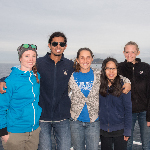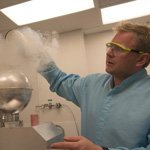Scripps Graduate Students Get Chance to Put R/V Sally Ride to the Test
Graduate students at UC San Diego’s Scripps Institution of Oceanography recently got an opportunity to try their hand at conducting research aboard the newly launched R/V Sally Ride.
















